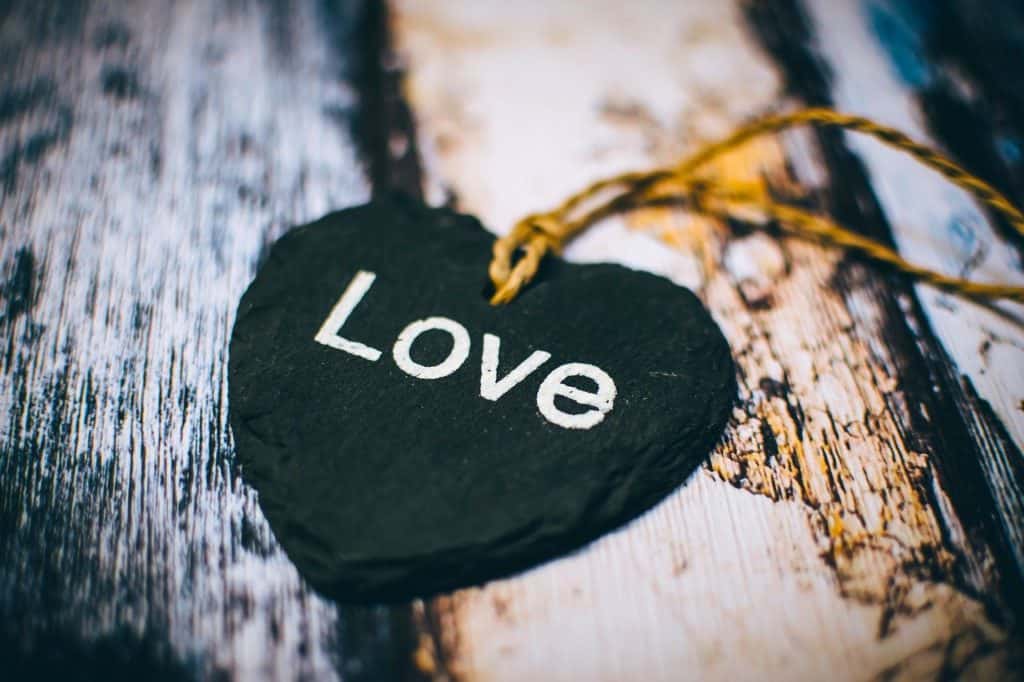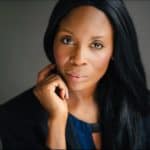– Nonfiction by Lanette Ware-Bushfield –

While growing up in Spanish Harlem – El Barrio as we knew it during the exhilarating years of the 1970s and 80s – diversity was my monarch, acceptance my culture, and faith my freedom. People thrive in tribes and the beauty, diversity, and respect I had for mine sustained me throughout my teens. Some say this was a curse, others call it a blessing. Race, religion, and politics had yet to wreak havoc on my soul.
With a hodgepodge of African-American, Puerto-Rican, and Italian offspring to play with on every corner, a private school, and regular visits to religious and after school enrichment programs, I was blessed by a constant surge of vibrancy and drama. Rice, beans, and fried pig perfumed the air, Coquitos passed in plastic cups to kissing couples dancing merengue. The spray from fire hydrants rippled pride and possibility across our brown, olive, and black bodies as high-tops flipped over braids, boomboxes, and broken lamp posts. If the roosters birthed and brought over in crates could jump as high as the local double dutch sway, I knew anything was possible for me.
I rushed through my classical piano lessons, ran down the fire escape, and clasped hands with my crew to chase an ice-cream truck down the block while fresh hip-hop beats split through ceilings. There was never a doubt our futures could be as bright as the array of sweet melts and melodies that fueled our spirits.
As my closest girlfriends’ mothers fussed in not so foreign languages over telenovelas and sewed frilly dresses for their daughters’ quinceañeras, I raced to my grandmother’s home after Sunday service to curl up on her couch and witness the majesty of Cicely Tyson and “Roots” while the elders wept nearby. These early experiences of bonding over the TV glare, amazing food, and exciting cultural conversation helped shaped the woman I would become. An irresistible compulsion was born in me to contribute to the fabric that unified people of all walks of life as powerfully as television had.
I began tasting the linguistics of my city’s deep divide with the smell, smoke, and mayhem of the 1977 blackout that sent shockwaves through our bodies quicker than the electricity we were lacking. I didn’t like the flavour. Things were going downhill fast with the looting, arson, and The Son of Sam. The graffiti-covered subways that ushered me to school downtown led me to the undeniable cries of mothers uptown losing their children to the crack epidemic.
By 1986, I had graduated from Music and Art High School in Manhattan, NY and opted to study drama at a small, private, all-girls Catholic college only forty minutes north of the city. In doing so, I rejected the larger University on Long Island which had a marching band and a college basketball team. My mother scratched her head over my decision for months, seeing as we were Presbyterian and I was an only child who loved a crowd. That is, until she discovered the close proximity of my new school to West Point.
One brisk Fall day, a friend and I were driving back to school after a visit with her boyfriend, a cadet, when we were hit by another vehicle from behind. Although neither of us was hurt, when the police arrived, they rushed to investigate my girlfriend’s welfare. It was in this moment that it started dawning on me that maybe others did see me as less, because I was not White. My shock persisted even as they sped off with her and left me, alone and confused on the sidewalk. Had I been so much of a Pollyanna I could barely smell the stench before me? My naivete cost me a great deal of pride on the long walk back as I caught the pitying eyes of shop owners who had witnessed the accident and incredulously chose to turn their backs with every foot I placed in front of the other.
It would take another thirty years before I would question the details of the officers’ dismissiveness of my presence and overall annoyance with having to deal with me at all, culminating in their suggestion I walk the steep hill back to campus alone. For years, I grappled with the obscure belief there must have been some logical, legal reason that I was not invited along with my friend into the squad car. I never once personalized this situation and felt less. Not once. I was just saddened that they’d go through so much trouble to divide us.
When my girlfriend and I reconnected, a resounding internal alarm rang beneath the silence of our gaze and the bleeding of our hearts. Our friendship was crippled and would not survive the collision. Later that year, I read about a man killed as another lay bloody and beaten on the streets of Howard Beach, NY both for breathing while Black. I felt confused by so much trauma. In my childhood neighborhood, there was no justifying why our lives mattered, they just did.
In the late 1990s, New Yorkers were barraged by erroneous news of a Teen Wolf Pack of Latin and Black gang rapists later coined the Central Park Five and were split on motive. A White middle-aged man named Bernard Goetz went on a violent, solo shooting rampage, was later acquitted, and then publicly revered for wounding four unarmed, Black boys on a moving train. Exactly twenty-seven years to the day of the Goetz shooting, one of his victims tragically killed himself. The outrage and pain these events caused, as well as the split reactions to the OJ verdict, often led my closest friends and me down a cruel path that proved how often cultural differences highlighted varying views on race and injustice. I could barely deny the fear, division, and panic staring back at me.
Every other wake up, silly head slap that shook me since has felt like someone spitting on my upbringing and tossing everything I knew about community, love, and respect out the window like a discontinued penny. Unlike the final stage of grief, I could never accept this loss.
Though my age of innocence had spun out of control like a triple axle breakdown, my incessant belief remained that we are all innately good souls, especially when we value one another’s differences.
The current cynicism swimming across screens at the expense of those deemed less valuable leaves me drowning in anxiety and threatens to blind me from who I really am. Coupled with my receding Astro galactic eyesight, thick hairline, and photographic memory, I am even more intimate with the resolve required to maintain hope during bleak times. In my private moments, I stand at a mirror, stripped of any make-up, hairdo, or dye, accepting the laugh lines on my neck and convincing myself we shall overcome.
I learned quite young that if you gave each child a balled piece of paper, placed a basket in front of class and asked everyone to shoot, the ability to score would have little to do with pedigree or talent. The difference was that those in the front rows had more access and ease of opportunity than those in the back. That is why I pride myself on working with corporations across all sectors whose mission statements align with #representationmatters. How else are we going to propel equitable opportunity forward?
As dual citizens of both the US and Canada, currently living in the diaspora of Toronto, the most multiracial, multicultural, and multilinguistic city on the globe, my children have developed into tiny progressives keenly aware of social injustice. Owning two anthems, waving both flags, attending civic protests, and skipping to the beat of our local beach drum, I remain zealous about their future. Their close friends have two mothers, single fathers, wear hijabs, shalom and run government and court systems all under yellow, brown, white, and black skin. They don’t sit idly, when someone is being dismissed due to sex, gender, race, or religion; they know their duty is to speak up and out when things don’t make sense. I have prepared them for the borders outside their bedroom walls by teaching them to lean on their inner sanctuary.
Today, some of my closest friends hail from places like Baltimore, Belize, Australia, the DR, Rhode Island, and the UK. Had it not been for the early Crayola box of views that surrounded me, I might not appreciate the rich friendships I am blessed with today.
As I rise on this supposed final stage of growth maturation and reflect upon who I have become over these past fifty years, I celebrate the doe-eyed little girl who grew up on Second Avenue playing hopscotch and dropping flips over the back of her skateboard for kicks. I am grateful for the expansive palette and wide range of foods I have come to love, including collard greens, arroz con gandules, plátanos, roasted black olives, cannolis, mofongo, and Matzo balls. My sleeves are rolled up for the next fifty.
They say 1968 was the most dramatic and consequential year in American history — Dr. Martin Luther King Jr. and Bobby Kennedy were murdered and the space race was in full swing. I can only imagine the pendulum of emotions my parents experienced as they welcomed me into their fifth floor Upper East Side walk-up. I was swaddled in a future potentially as bleak as the dark, cold December night in which I was born.
The most beautiful and humbling part of my evolution is that throughout all the love, sorrow, and joy, I am prouder than ever of my humble beginnings. As I advocate for more diversity and inclusion on the stage and screen, I find myself less dispirited by superfluous ideology and more determined to sip my Boba tea and dance with the people I love like it’s nobody’s business.
Both my children are strong athletes, one with a keen eye for sketching who understands depth of field while the other is a natural born comedian destined to be on the first rocket to Mars. I teach them daily everything I’ve learned to harness their full potential and point them in the direction of their dreams. I dream of the day when all children know the warm embrace of equality; when our socio-economic status, political affiliation, and postal code no longer provide the impetus for how we treat one another; when we fully give of ourselves and learn to value the one altruistic gift that will surpass the passage of time: Love.
About the Author – Lanette Ware-Bushfield

Lanette Ware-Bushfield is a New York City born actor, writer and producer currently living in Toronto, ON. Lanette has worked alongside Samuel L. Jackson, Alec Baldwin, Chris Rock and James Gandolfini, has produced several television projects for the small screen and has been directed by Spike Lee, Joel Schumacher and John Singleton to name a few. In August 2019, she was cast in her largest lead role to date. Her personal essays have been featured in The Globe and Mail and Mothering Magazine. Lanette is the creator/writer of Monarch 7, a sci-fi series developed for the small screen and Ahead of the Curve, an upcoming 10-part multi-platform talk series which will showcase the talents of the underrepresented and marginalized artists. *The First 50 was previously published by Aaduna.
Did you like this nonfiction story by Lanette Ware-Bushfield? Then you might also like:

Dreamers Writing Prompt Generator
Experience the power of simplicity with our unique writing prompt generator. Designed for writers who crave spontaneity and surprise, our tool delivers one meticulously crafted prompt at a time.

Top 25 Most Popular Manga Right Now
If you’re searching for the most popular Manga right now, this top 25 list is the ideal starting point, whether a beginner or enthusiast.
To check out all the nonfiction available on Dreamers, like this piece by Lanette Ware-Bushfield, visit our nonfiction section.
Like reading print publications? Consider subscribing to the Dreamers Magazine!